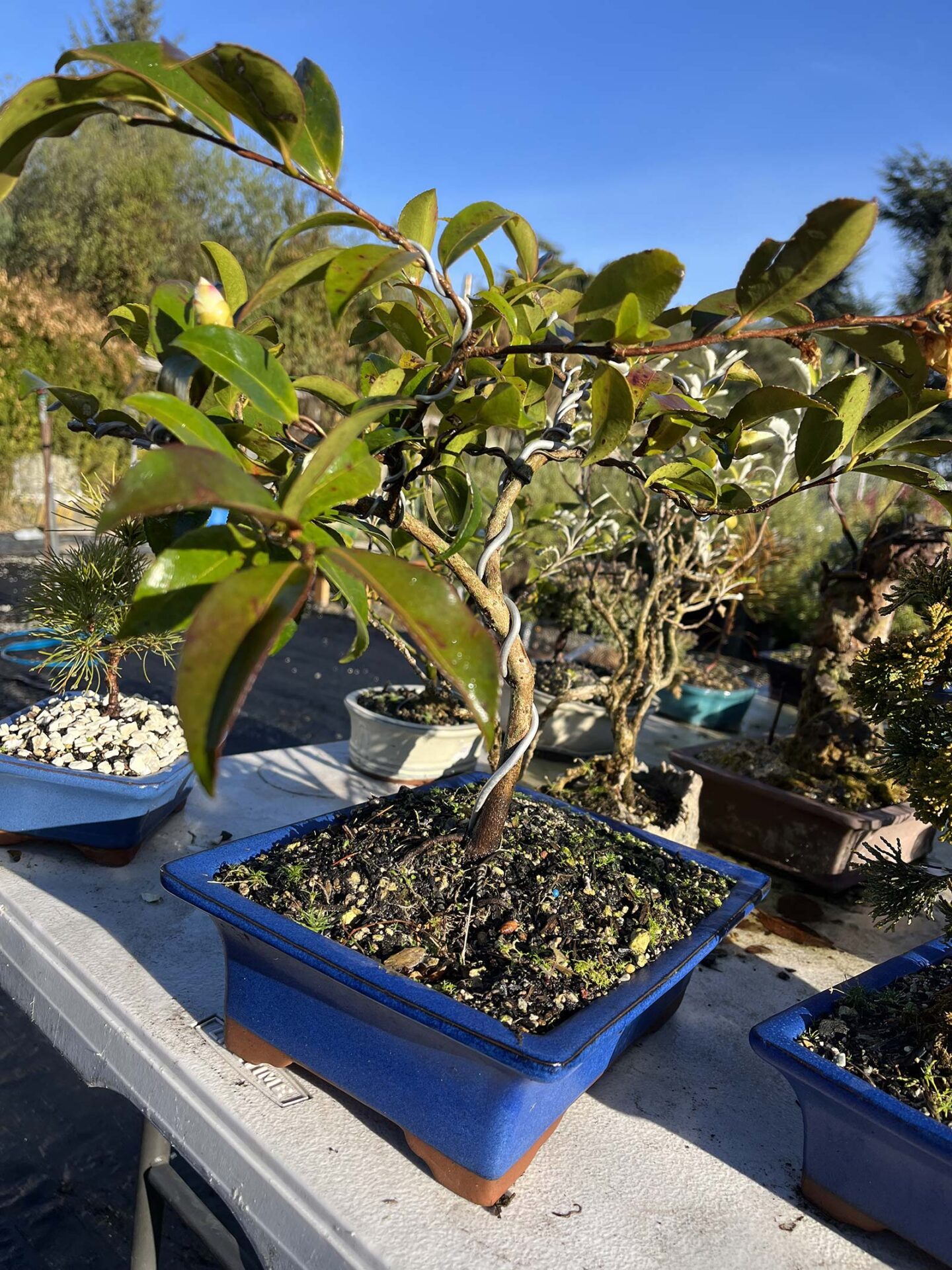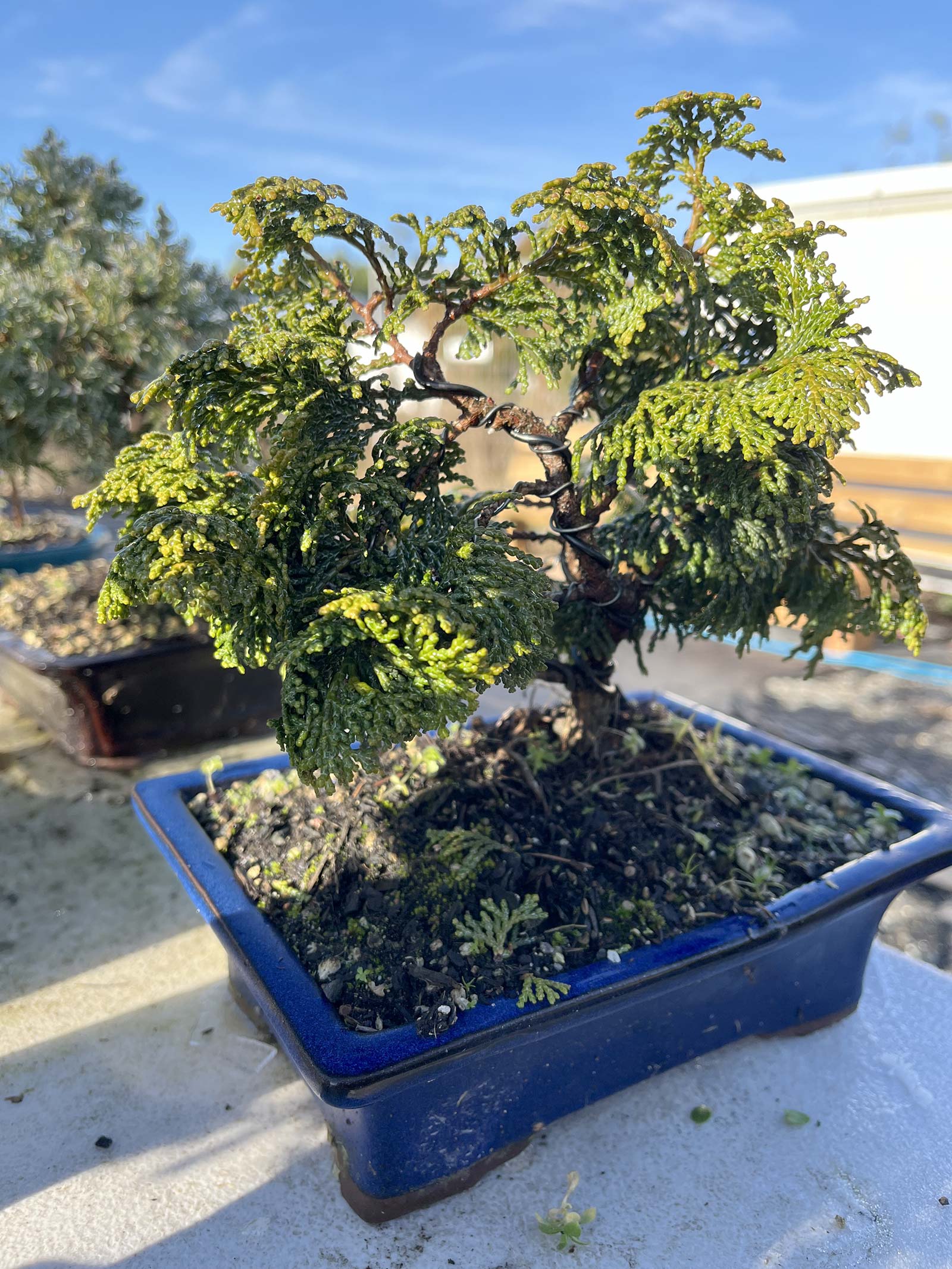Bonsai Care
Taking care of your Bonsai
Please note that this is a General Care Guide only. The information contained is generalised and some tree species may have different care requirements.
Watering a Bonsai
It’s extremely important to keep your bonsai tree moist and never let it dry out. How often bonsai needs to be watered depends on the weather and the depth of the pot. Monitor your bonsai and water once the soil gets slightly (but never completely) dry. When watering, do it thoroughly by either carefully watering from the top until water comes out at the bottom or by sitting the pot in a tub of water so it reaches halfway up the sides of the pot and letting the water soak up from the bottom. A good soak during the summer is highly recommended.
Where to Place a Bonsai
Keep your bonsai outside in a sheltered position and protected from strong winds. Place the bonsai where it will receive full sun year-round, although, it may benefit from part shade during the peak of summer. Bonsai may be displayed inside for up to 3 days at a time, but always remember that that a tree’s natural habitat is outside.
Bonsai Fertilising Regime
Liquid feed every two weeks using a balanced fertiliser such as ‘Nitrosol’ or ‘McGregors Vege & Ornamental’ from early-spring to early autumn. Apply liquid seaweed tonic every other month for plant health. You can mix this in with your Nitrosol or VegeMax feed. Always follow the directions on the fertiliser packet, and water the bonsai thoroughly before feeding to avoid root burn. Only feed during the growing season (spring-autumn). Do not fertilise if the tree is diseased. Do not fertilise newly re-potted trees for at least a few weeks.
Trimming a Bonsai
Trim back growth every few weeks when your bonsai starts to get out of shape during the growing season (spring to autumn) When making a cut, use sharp scissors and aim to cut right above a leaf node. The overall tree shape that you should aim to create is a triangular silhouette. When your bonsai grows too dense, you will need to thin out the foliage by removing excess stems. This will encourage light and air to enter the centre of the tree.
Re-potting a Bonsai
Re-pot your bonsai every 1-2 years during early spring. You can trim up to one-third of the roots before your bonsai goes back into the bonsai pot. Place the bonsai in a sheltered and slightly shaded spot for a week or two after re-potting. At this crucial stage, we want to shelter the bonsai from the hot sun, heavy rain, frost, snow, and wind. Lastly, be careful to not over-water your bonsai after re-potting. Re-pot using a fast-draining soil mix. To make this, combine potting mix with pumice.
Wiring a Bonsai
Wiring allows you to move branches into a desired position. Wire branches at any time of the year, although branches set faster during the growing season. Apply wire that is roughly 1/3 the thickness of the branch you are planning to wire.
Bonsai Pests and Diseases
Inspect your bonsai closely every other week for any sign of pest or disease. ‘Yates Bug Oil’ is recommended for pests. “Yates Fungus Fighter’ is recommended for mildew, black spot, and some other diseases.
For more information please contact Myra Yeban at Myra’s Collection
Mobile: 021 024 50068 Facebook: facebook.com/myrascollection2018 Email: greenery00@yahoo.com
